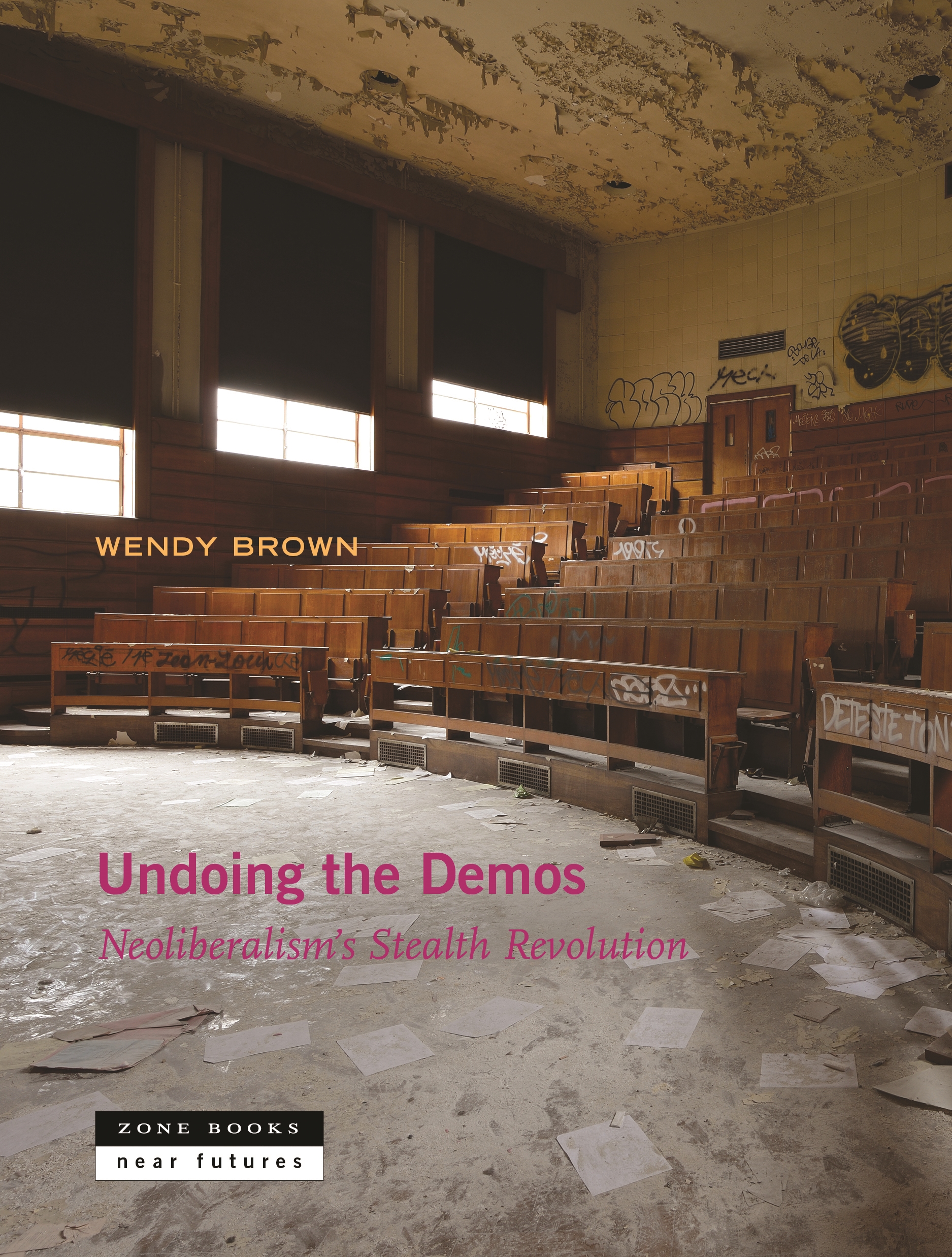
Stepputat (eds.) States of Imagination, Durham, NC: Duke University Press, pp. (2001) ‘“Demonic Societies”: Liberalism, Biopolitics and Sovereignty’, in T.B. (eds.) (1991) The Foucault Effect: Studies in Governmentality, Hemel Hempstead: Harvester Wheatsheaf.ĭean, M. (eds.) (2002) Left Legalism/Left Critique, Durham, NC: Duke University Press.īurchell, G., Gordon, C. (2015) Undoing the Demos: Neoliberalism’s Stealth Revolution, Cambridge, MA: Zone Books.īrown, W. (2010) Walled States, Waning Sovereignty, Cambridge, MA: Zone Books.īrown, W. (2008) Regulating Aversion: Tolerance in the Age of Identity and Empire, Princeton: Princeton University Press.īrown, W.

(2001) Politics Out of History, Princeton: Princeton University Press.īrown, W. (1995) States of Injury, Princeton: Princeton University Press.īrown, W. (1988) Manhood and Politics: A Feminist Reading in Political Theory, Lanham, MD: Rowman & Littlefield.īrown, W.

(eds.) (2004) The Technological Economy, London: Routledge.īrown, W. (eds.) (1996) Foucault and Political Reason: Liberalism, Neo-Liberalism and Rationalities of Government, Chicago: University of Chicago Press.īarry, A. (2001) Political Machines: Governing a Technological Society, London: Athlone Press.īarry, A., Osborne, T. Heron, Edinburgh: Edinburgh University Press.īarry, A.

(2015) Stasis: Civil War as Political Paradigm. (2009) The Signature of all Things: On Method. These are issues that are important not only for the specific argument of Undoing the Demos, but more generally for social and political theory today.Īgamben, G. The exchange here between the three reviewers – Mitchell Dean, Alen Toplišek and Anne Barron – and Wendy Brown focuses on a number of issues: the use and usefulness of Michel Foucault’s notion of governmentality and Karl Marx’s analysis of capitalism for analysing neo-liberalism the way that neoliberalism ‘economises’ everything including politics and democracy the nature of the state and of sovereignty, and how the left should relate to these and the nature of critique in its different forms (Kantian, Foucauldian, Marxist and others). Analysing neo-liberalism and its relationship to democracy, Brown draws on the works of Michel Foucault and Karl Marx. To be specific, neo-liberalism has undermined what is at the heart of democracy: popular sovereignty, the demos – it has, in a word, undone the demos and, hence, democracy. In Undoing the Demos: Neoliberalism’s Stealth Revolution, Wendy Brown argues that neo-liberalism has undermined democracy in a hitherto unprecedented form.


 0 kommentar(er)
0 kommentar(er)
